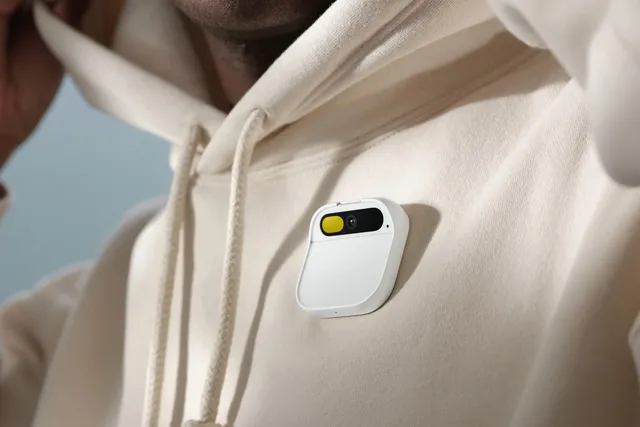Artificial Intelligence (AI) has been a transformative force across various industries, pushing the boundaries of what we once thought possible. One of the recent developments in the realm of AI that’s creating waves is the advent of AI-powered personal identification numbers, commonly known as AI-PIN. In this blog post, we’ll delve into what AI-PIN is, its applications, potential benefits, and the implications it carries for privacy and security.
Understanding AI-PIN
AI-PIN is an innovative approach to personal identification that leverages artificial intelligence algorithms for enhanced security and efficiency. Unlike traditional PINs, which are typically static and can be vulnerable to security breaches, AI-PINs are dynamic and adaptive, constantly evolving based on user behavior, biometric data, and contextual factors.
Applications of AI-PIN
1. Enhanced Security:
AI-PINs offer a higher level of security compared to traditional PINs. The adaptive nature of AI-PINs means they can analyze patterns in user behavior, such as typing speed, pressure applied, and even the angle at which a person holds their device. This behavioral biometrics adds an extra layer of security.
2. Financial Transactions:
The financial sector has embraced AI-PIN technology for securing transactions. Adaptive PINs provide a more secure method for authorizing payments, reducing the risk of fraudulent activities.
3. Access Control Systems:
From unlocking smartphones to accessing secure facilities, AI-PINs can be applied to various access control systems. The dynamic nature of these PINs makes them more resilient against unauthorized access attempts.
4. Healthcare Authentication:
In healthcare, where the protection of sensitive patient data is paramount, AI-PINs can enhance authentication processes. This is particularly crucial in telemedicine and remote patient monitoring scenarios.
https://www.youtube.com/watch?v=CwSeUV3RaIA
Benefits of AI-PIN
1. Improved User Experience:
AI-PINs adapt to user behavior, reducing the chances of forgetting or mistyping a PIN. This improves the overall user experience, making authentication more seamless.
2. Continuous Authentication:
Unlike static PINs, AI-PINs provide continuous authentication. The system can monitor user behavior throughout a session, promptly identifying any anomalies that may suggest unauthorized access.
3. Reduced Vulnerability to Attacks:
Traditional PINs are susceptible to brute-force attacks. AI-PINs, with their dynamic nature, are far more resilient, as they can adapt to new patterns and thwart malicious attempts.
Privacy and Security Considerations
While AI-PINs offer promising advancements, they also raise important questions about privacy and security. The collection and analysis of user behavior data for adaptive PINs necessitate robust data protection measures. Striking the right balance between enhanced security and safeguarding user privacy will be crucial for the widespread adoption of AI-PIN technology.
In conclusion, AI-PINs represent a significant step forward in the evolution of personal identification methods. Their adaptive nature, continuous authentication capabilities, and applications across various sectors position them as a formidable tool in the age of artificial intelligence. However, as with any technological innovation, careful consideration of ethical and privacy implications is essential to ensure a secure and user-friendly future.
As AI continues to reshape our digital landscape, AI-PIN stands as a testament to the limitless possibilities that emerge when technology meets innovation.
Can AI-Pin Replace Smartphones?
Today, technological advancements are gaining momentum, and these innovations have the potential to fundamentally change our daily lives. AI-pin (artificial intelligence-supported pin) stands out as one of these innovations. So, can AI-pin replace smartphones? Let’s delve into an examination to find the answer.
AI-Pin vs. Smartphones
- Portability and Convenience: AI-pin, being a portable pin, is physically lighter and easier to carry compared to smartphones, which are generally larger and heavier.
- Customization Ability: AI-pin continually learns the user’s experience, providing more personalized suggestions. While smartphones also offer this feature, AI-pin might be more specific and quicker in this regard.
- Dependency and Distraction: Smartphones can often keep users constantly busy with a range of applications and notifications. AI-pin provides a more focused and task-specific experience.
However, at the current technological level, it’s not entirely possible for AI-pin to replace smartphones. Both technologies have their advantages and limitations. In the future, with further advancements in AI-pin technology, this balance may shift.
In conclusion, AI-pin could be one of the technological trends of the future, but replacing the extensive functionality provided by smartphones seems challenging at this stage.









